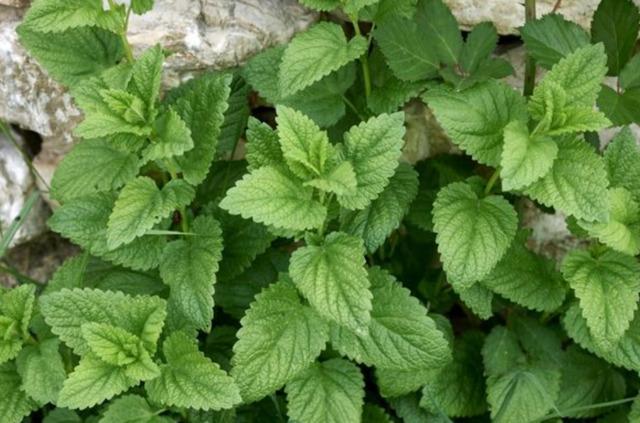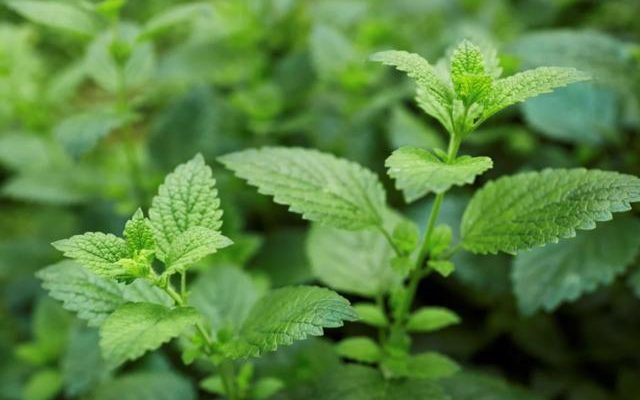The miracles that nature offers us can have nutritional properties that can be effective in the treatment and prevention of many health-related problems. These benefits of natural nutrients are increasingly supported by modern medical research and clinical studies. Faculty of Medicine Lecturer Prof. Dr. Aysun Mr. Karabulut explained the surprising benefits of lemon grass, which is known as the “elixir of life”.
Stating that lemongrass is a mint type plant that grows in Central Europe and the Mediterranean regions, Karabulut said, “The Latin name of the plant, Melissa, means ‘Bee leaf’. “In addition, the origin of the name is ‘Mel’, which means ‘Bal’ in Latin, and since the plant is rich in nectar, it was generally used to feed bees,” he said.
TREATMENT OF POISONING AND SEVERE ABDOMINAL PAIN
Prof. Dr. Karabulut said that the solution prepared from the leaves of the plant used for scorpion and spider stings in Greek mythology is registered in Materia Medica, where it is used in mushroom poisoning and severe abdominal pain together with potassium nitrate, in shortness of breath when used in syrup form, and in the treatment of scrofula and ulcers when applied with salt.
IT IS INCLUDED IN IBN-I SINA’S BOOK
Reminding that Ibn-i Sina, the author of the work called El-Kanun Fi’t-Tıb, known as the founder of medieval modern science and the leader of physicians, noted that the M. officinalis plant is effective in the treatment of all phlegm-related diseases and stress diseases, Karabulut said, “It prevents congestion in the brain and breathing. “Let’s also note that it relieves stenosis, refreshes the heart and has a positive effect on bad breath,” he said.

EFFECTIVE IN NERVOUS SYSTEM DISEASES
Karabulut stated that both its use and cultivation spread to Europe after its use in Morocco was introduced to Spain in the seventh century, and pointed out that lemon grass is referred to as the ‘Elixir of Life’ in French literature. Stating that lemongrass is used in many areas in traditional medicine, Karabulut said that the leaves of Lemongrass, also known as lemon mint, lemon grass, tatramba, temre grass among the people in Turkey, are used in the form of solutions due to their sedative, midevitic, carminative, diaphoretic and antiseptic effects. .

IT IS COMMONLY USED IN OUR COUNTRY
He also stated that lemongrass is widely used against different diseases in different regions of Turkey and said:
“It is used in folk medicine in the Sakarya region, in the treatment of depression and migraine, and in the Kırklareli region, it is used in the treatment of asthma, heart diseases, diabetes, bronchitis and cancer. In the provinces of Balıkesir, İzmir, Denizli, Uşak and Kütahya, it is used for stomach disorders, cardiovascular diseases, asthma, liver disorders, psychological disorders, memory loss, sleep-inducing, soothing the nervous system, mind-opening, heart-fortifying, cardiovascular-opening, blood-purifying, It is registered to be used against diabetes, pharyngitis, pain (head, teeth, ear) and tinnitus. While it is generally used for cardiovascular diseases in Antalya and Istanbul, its use is more common in Çanakkale, Gaziantep and Giresun to lower blood sugar. In addition, the infusion prepared from the above-ground parts in the Ezine district of Çanakkale has been found to be used in the treatment of ovarian diseases in women by drinking it on an empty stomach in the morning. Among the public, it is used in a solution prepared from the above-ground parts of the plant after adding sliced lemon to treat cardiovascular diseases, using the above-ground parts of the plant after drying and powdering it and mixing it with honey, or using an infusion prepared with lemon grass leaves and above-ground parts of the Naoloui plant. There are applications. Various experimental clinical studies have demonstrated that lemongrass improves scientific performance and mood, and that its use is beneficial in cases such as anxiety and related insomnia, Alzheimer’s, dementia, oxidative stress due to low dose radiation exposure, and menstrual pain. In addition, various in vivo studies have reported that the plant has antioxidant, analgesic and anti-inflammatory activities, so its use in the treatment of diabetic neuropathy may be useful. Today, lemongrass is used in many countries of the world in the pharmaceutical, perfume, cosmetic and food industries.”
(UAV)

